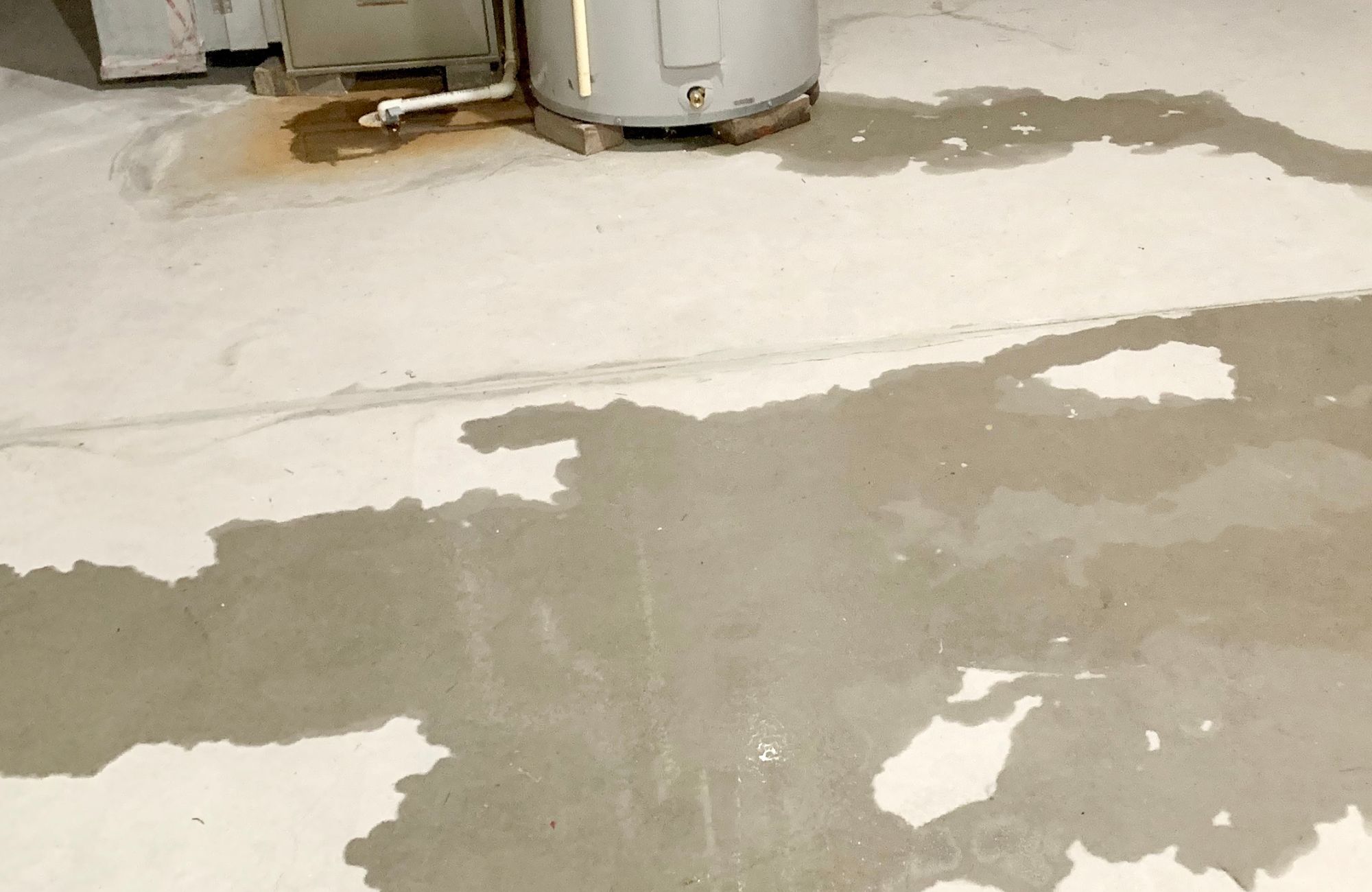
Is a Leaking Water Heater Dangerous? Risks, Causes & Solutions
A leaking water heater is often dismissed as a minor inconvenience, but it can quickly turn into a major hazard if left unchecked. From potential flooding to fire hazards, a leaking hot water heater can cause serious damage to your home, increase energy bills, and even put your safety at risk.
In this guide, we’ll cover everything you need to know about the dangers of a leaky water heater, common causes of leaks, and the immediate steps you should take to prevent further damage. We’ll also explore whether you should repair or replace your water heater and how to prevent leaks from happening in the first place.
How Dangerous is a Leaking Water Heater?
A water heater leak may start as a small puddle, but if ignored, it can escalate into severe structural damage, electrical hazards, and even explosions. Understanding these risks will help you take action before the problem worsens.
1. Water Damage & Mold Growth
One of the most immediate concerns with a leaking water heater is water pooling around or leaking from the bottom base of the unit. Even a small leak can lead to extensive damage if left untreated.
- Standing water seeps into flooring, walls, and foundations, weakening structural integrity.
- Moist environments encourage mold and mildew growth, which can cause respiratory issues and allergies.
- If the leak reaches electrical components, it increases the risk of short circuits or electrical fires.
2. Fire & Explosion Risks
Gas water heaters pose an even greater risk if they begin to leak. If water reaches the source of the leak, gas burner or igniter, it can cause a gas leak, increasing the likelihood of a fire or explosion.
- A faulty pressure relief valve can cause excess pressure buildup inside the water heater tank. In rare cases, this pressure can lead to an explosion.
- Water leaking into electrical components of an electric water heater increases the risk of short circuits, overheating, and potential fires.
- Allowing steam or hot water to leak for an extended period can cause scalding injuries.
3. Scalding & Burns
If a temperature or pressure relief valve on the water heater is leaking or malfunctioning, your water heater may produce excessively hot water, posing a serious burn hazard.
- Water temperature above 140°F (60°C) can cause third-degree burns in just seconds.
- Leaking steam or hot water creates an unsafe environment for children and pets.
- Fluctuating temperatures make it difficult to safely use the hot water supply.
4. Health Hazards from Contaminated Water
A leaking water heater can also lead to water contamination.
- If sediment buildup occurs in the tank, it creates an environment for bacterial growth, such as Legionella, which can cause serious lung infections.
- A leaky water tank introduces rust, minerals, and sediment into your water supply, making it unsafe for consumption.
Common Causes of Water Heater Leaks
Understanding why water heaters leak can help prevent issues before they escalate. Here are a few reasons why water pressure and leaks occur:
1. Sediment Buildup & Corrosion
Over time, minerals from hard water accumulate inside the water heater water tank, leading to sediment buildup.
- This buildup causes the tank to overheat, weakening the metal and leading to leaks.
- Sediment can also clog the drain valve, preventing proper flushing and maintenance.
2. Faulty Temperature & Pressure (T&P) Valve
The temperature and pressure relief valve (T&P valve) is a crucial safety component that releases excess pressure.
- If the relief valve is leaking, it may be a sign of dangerously high pressure inside the tank.
- A malfunctioning T&P valve increases the risk of explosions.
3. Loose or Worn-Out Connections
Water heater leaks can stem from loose fittings, two pipes, drain valves, or outlet connections.
- The inlet and outlet pipes may develop leaks if the connections become loose over time.
- Worn-out drain valves allow small leaks, leading to water pooling around the unit.
4. Age-Related Wear & Tear
Water heaters typically last 8-12 years, but as they age, internal tank corrosion can occur.
- Rust weakens the tank, leading to cracks and leaks.
- Anode rods, which prevent corrosion, deteriorate over time, reducing the tank’s lifespan.
Immediate Steps to Take if Your Water Heater is Leaking
A leaking water heater is an emergency, and taking immediate action can prevent further damage.
1. Turn Off the Water Supply
The first step is to move the p valve to stop the water flow to prevent further leakage.
- Locate the main shut-off valve or the cold water shutoff valve near the heater.
- Turn the valve clockwise to cut off the water supply.
2. Shut Off the Power (Gas/Electric)
To avoid fire hazards, turn off the power supply to the hot water tank heater.
- For electric water heaters, switch off the circuit breaker.
- For gas water heaters, turn the gas shutoff valve to the “off” position.
3. Inspect the Leak Source
Before calling a professional plumber, check for leaking pipes, plumbing, valve connections, and drain valves.
- If the leak is coming from the tank itself, replacement may be the only fix.
- If it’s a loose fitting, a simple pipe wrench adjustment may be enough.
4. Call a Professional Plumber
A leaking water heater is extremely dangerous, and professional repair or replacement is often required.
- A plumber can assess the leak source and recommend the best solution.
- If a water heater replacement is necessary, they can install a new unit safely.
Should You Repair or Replace a Leaking Water Heater?
If your water heater is leaking, should you repair it or replace it? Here’s a quick fix and breakdown:
| Condition | Repair | Replace |
|---|---|---|
| Small leak from fittings | Yes | No |
| Sediment buildup | Yes | No |
| Rusty water or tank corrosion | No | Yes |
| Water heater older than 10 years | No | Yes |
Conclusion
A leaking water heater is dangerous and should never be ignored. Whether it’s water damage, gas leaks, or pressure buildup, the risks of water heater repair outweigh the cost of immediate repairs. By understanding common causes, taking preventive measures, and acting fast, you can avoid costly damage and keep your home safe.
A leaking water heater can quickly turn into a major hazard, causing water damage, increasing utility bills, and even posing serious safety risks. Don’t wait until the problem worsens, let Prestige Water Group help. Our licensed professionals specialize in water heater repair, replacement, and maintenance to keep your home safe and your hot water flowing efficiently.
Call us today at (973) 227-4740 or email info@pwgroupnj.com to schedule an inspection. Visit our website to learn more about our expert plumbing and water treatment services across New Jersey. Let us help you find the best solution for your water heater needs!
Humanize 102 words
FAQs
Is it safe to leave a leaking water heater on?
No, leaving a leaky water heater on increases the risk of electrical hazards, gas leaks, and water damage. Always shut, turn off the power, supply, and water source immediately.
How urgent is a leaking water heater?
A leaking water heater is an emergency. Even a small leak can cause major damage, mold growth, and increase your energy bills.
Is a leaking water heater dangerous to humans?
Yes, a leaking water heater can cause scalding injuries, gas leaks, and bacteria contamination, making it hazardous to your health.
Will a leaking water heater burst?
Yes, if pressure builds up inside the water leaking the tank due to a faulty relief valve or overheating, the water heater can explode.
